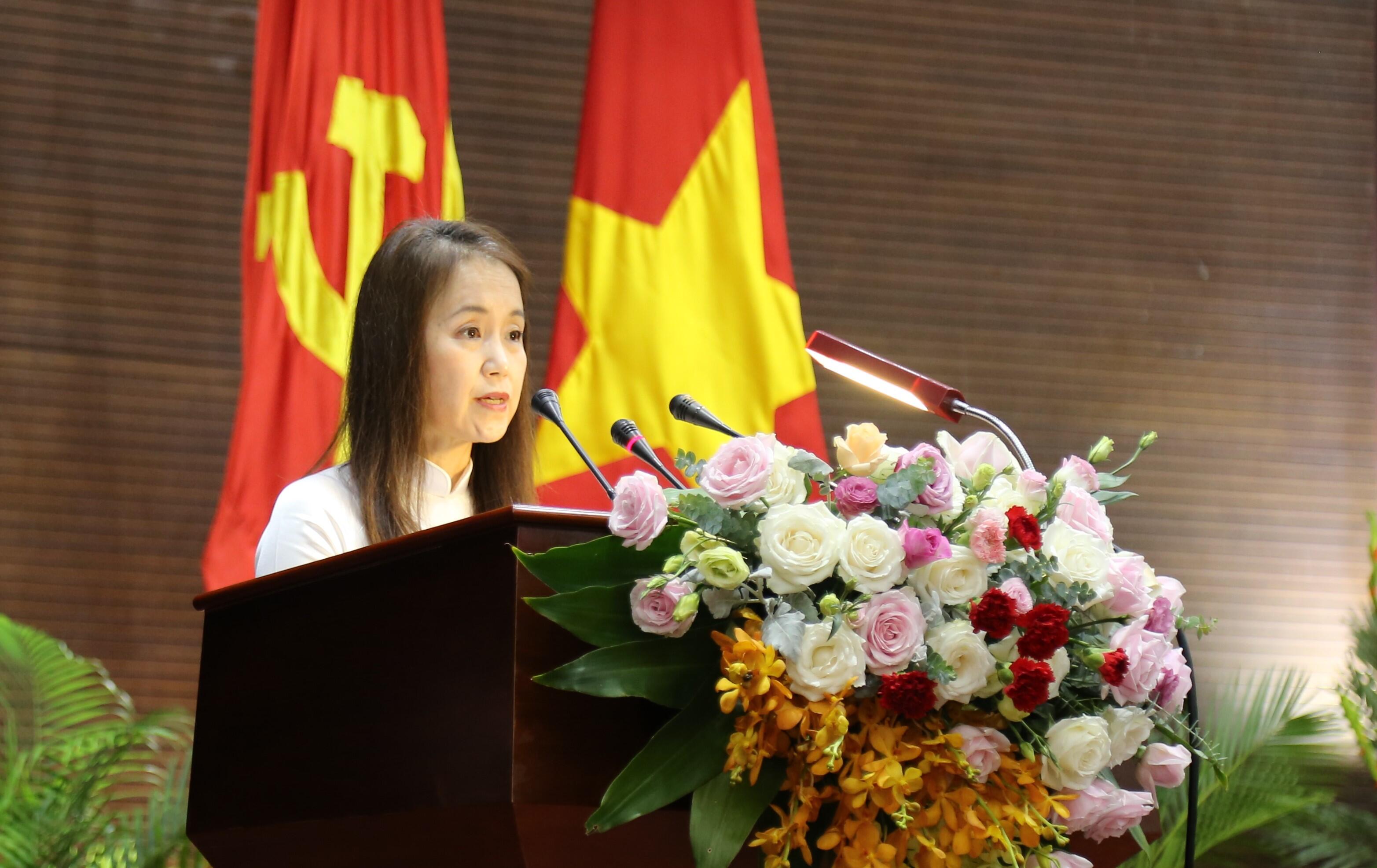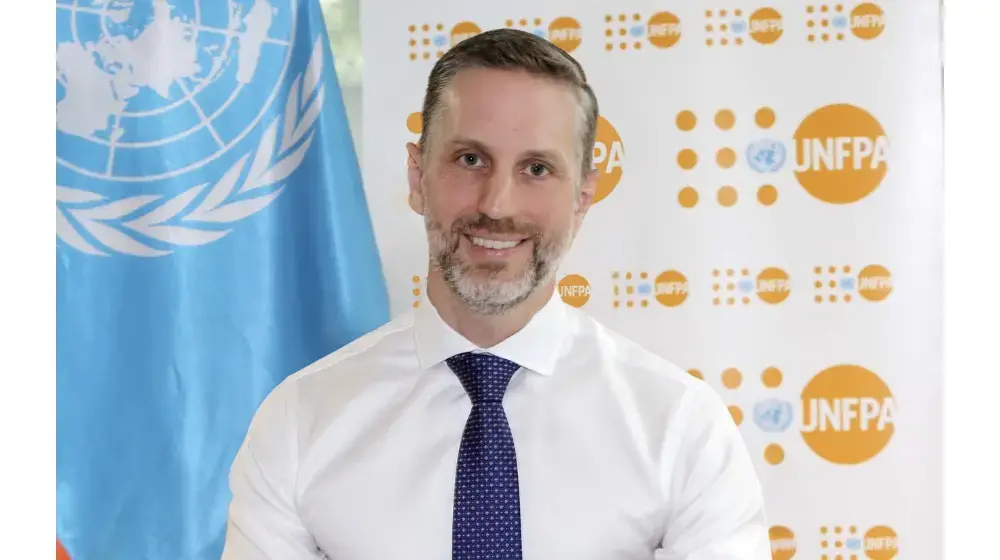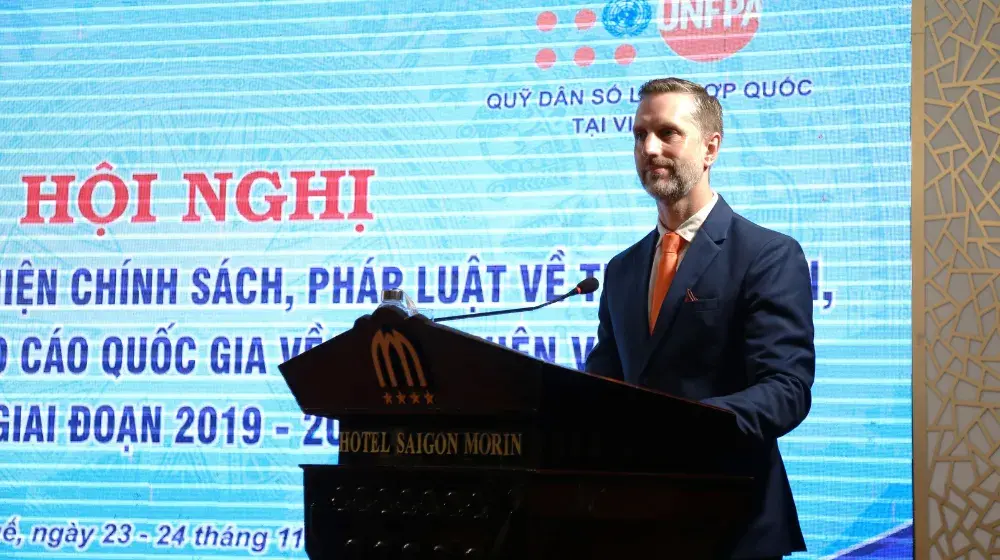Mr. Tran Anh Tuan, Vice Minister of Home Affairs;
Mr. Nguyen Van Tuyet, Vice Chair, Committee of Culture, Education, Adolescents, youth and Children of the National Assembly;
Representatives from the Central Propaganda Department of the Communist Party of Vietnam; the Central Organization Commission; the Office of the Communist Party of the Vietnam Central Committee; the President’s Office, different line Ministries and departments of the Ministry of Home Affairs;
Representatives from the Central Youth Union, youth organizations and the National Committee for Youth;
Experts and scientists involved in the process of developing the Youth Law;
Media houses;
My fellow UN colleagues; and Ladies and Gentlemen;
It is my great pleasure to be here today for the dissemination of the revised Youth Law, which was approved by the National Assembly on 16 June 2020.
Firsly, I would like to express our special appreciation to the Ministry of Home Affairs (MOHA) for organizing today’s event, and Mr. Tran Anh Tuan, Vice Minister of MOHA for inviting me to participate and deliver UNFPA’s remarks today. Also, I highly appreciate the support from the National Assembly’s Committee of Culture, Education, Adolescents, youth and Children for having intensely advocated for the approval of the revised Youth Law. Moreover, the finalization of the Youth Law was not possible without very hard work and valuable inputs provided by central and local Youth Unions, young people and other stakeholders. Simply put, thank you!
Ladies and gentlemen,
Since 2017, the UN Theme Group on Adolescents and Youth, under the leadership of UNFPA, has brought together ten UN agencies with a wide range of global experience and networks to support efforts related to youth in Viet Nam. The UN theme group has been working closely with the drafting team and MOHA to provide substantial technical inputs and policy advice on the revision of the Youth Law. Together with the UN thematic group on Adolescents and Youth, the Youth Advisory Group, which has been established by the UN Viet Nam, and the Central Youth Union have been part and parcel of the process to ensure meaningful youth participation in the law development process.
We trust that the Youth Law will provide a valuable legal framework in guiding the planning and implementation of the Government’s Youth Policy and programmes for Vietnamese young people, who are the key change agent for Viet Nam to achieve SDGs by 2030.
Distinguish guests,
In this context, I would like to highlight a few issues:
First, as identified in the Viet Nam 2013 Constitution, as well as in the International Treaties and Agreements that Viet Nam ratified, it is critical that diverse nature of youth is fully respected in the implementation phase of the new Youth Law. There are vulnerable youth such as girls, young people with disabilities, ethnic minority youth, LGBT youth, and migrant worker youth, and we must recognize special needs of each youth sub-groups. And their protection and rights should be included and promoted in the Government Decrees guiding the implementation of the Youth Law 2020 at all levels.
Second, although the UN Youth Advisory Group and the Youth Union have greatly contributed to the youth law development process, the substantial efforts are still needed to create an enabling environment and dynamic mechanisms to allow youth participation, particularly in translating the Youth Law into concrete actions. We highly welcome that the Policy on Youth Dialogue is included in the Youth Law, but youth friendly platforms should be created to encourage young people, especially vulnerable youth groups, to have a regular dialogue with government leaders and policy makers on their needs and concerns, particularly within the SDG context of leaving no one behind. The Viet Nam Youth Union and the Viet Nam Youth Association are strong at gathering their members to participate in the policy development and consultation, and building on this, UNFPA and other UN agencies in Viet Nam will continue to complement and further increase the effective participation of young people in developing, implementing and monitoring different policies that affect their lives. The important work that we have undertaken with the Ministry of Home Affairs for the revision of the Youth Law is one of the excellent examples.
Third, we have jointly learned over the years that the implementation and enforcement of the Youth Law 2005 and youth related programmes remained weak, resulting in a huge gap between policy and implementation. The revised Youth Law 2020 clearly identified obligations and accountability of the Government and various stakeholders in the law implementation, and therefore, effective coordination among line Ministries at national and sub-national levels, as well as among public and private sectors, will be essential for the Youth Law 2020 implementation. MOHA, as the state management body for the youth affairs, will play a crucial role and is accountable for coordinating, monitoring and reporting the progress as well as the quality of the Youth Law 2020 implementation.
Last but not least, to ensure the full and effective implementation of the revised Youth Law, financial resources have to be brought in, and budgets must be allocated. As we all know, this was one of the critical bottlenecks of the earlier 2015 Youth Law. I would like to appeal to all state entities, that is the National Government, line Ministries, and provincial People’s Committees, to allocate its budget for the implementation of the Youth Law and policies.
Ladies and gentlemen,
Viet Nam is going through a demographic transition. We have the largest population of young people ever in Viet Nam’s history, and this is a very unique opportunity to tap into the demographic dividend. Strategic investment has to be made now in young people to maximise socio-economic growth of the country, particularly under the current Covid-19 context.
Let me assure you that UNFPA is fully committed to supporting the Government of Viet Nam, so as to ensure that the potential of Vietnamese young people is fully fulfilled.
I thank you for your attention and participation.




